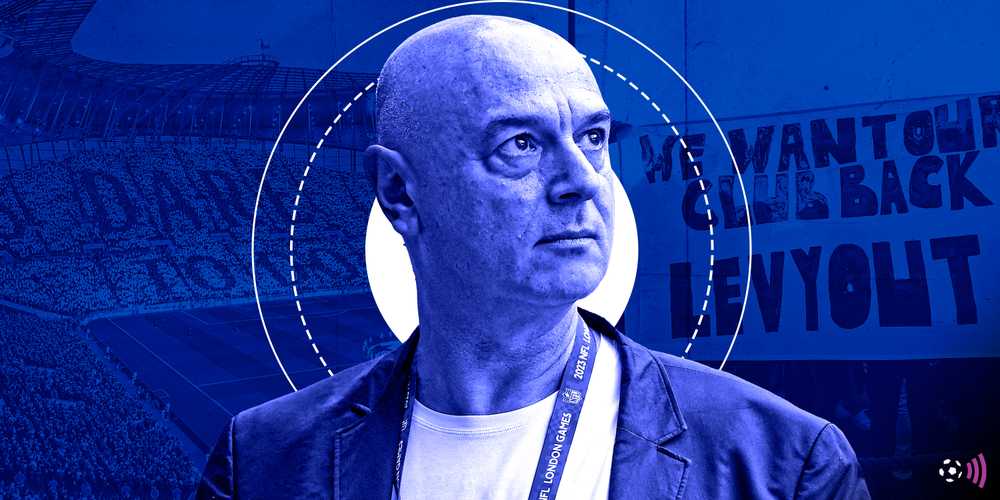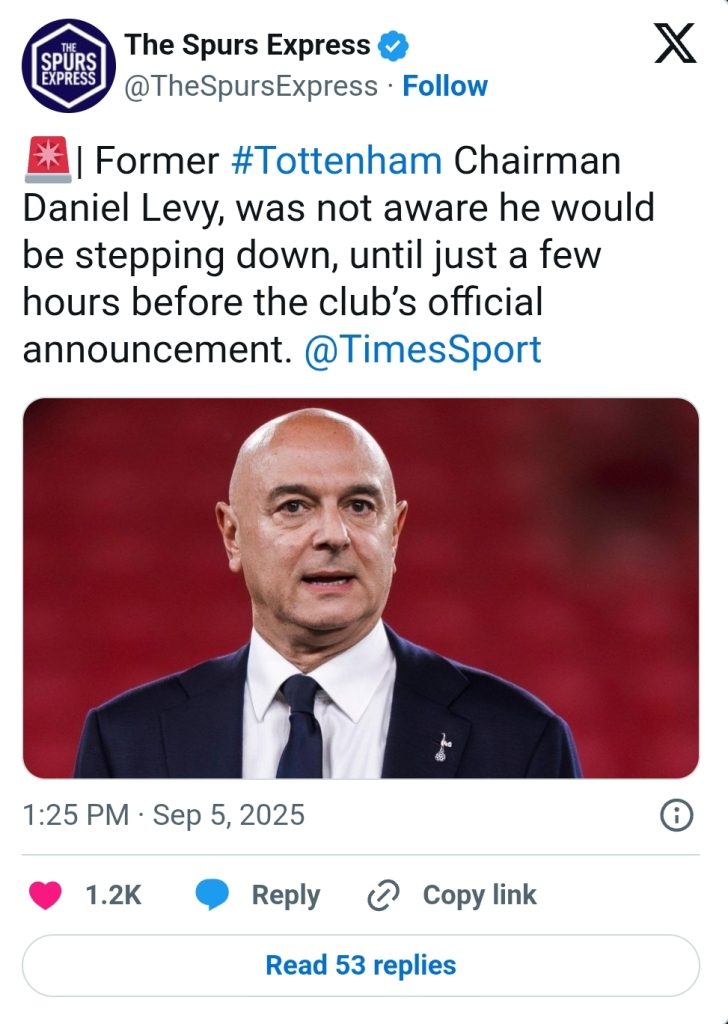The world of football is rarely shaken by a change at the very top, but the news that Daniel Levy has stepped down as chairman of Tottenham Hotspur after nearly twenty-five years is a moment of genuine significance.
For a generation of fans, players, and staff, Levy was not just a chairman; he was the architect, the constant presence, and the defining force behind the modern identity of the club.
His departure marks the end of an era and the beginning of a completely new chapter for the North London side, sparking questions about why this happened now, what comes next, and what his complex legacy will ultimately be.
To understand the timing of this decision, it’s important to look beyond the recent on-pitch success. While the club celebrated a Europa League victory just months ago, ending a long trophy drought, the move was reportedly not Levy’s own.

Sources indicate the decision was made by the Lewis family, the ultimate owners of the club through their investment company, ENIC.
After a thorough, independent review of the entire organization, the conclusion was reached that a modernized leadership structure was essential for the club to consistently compete at the very highest level.
The belief was that despite the undeniable progress, success on the pitch had not been consistent enough over the long term.
This summer of sweeping change—which included appointing a new head coach in Thomas Frank and a new CEO in Vinai Venkatesham—was all part of a pre-planned jigsaw, with Levy’s exit as the final piece.
This shift represents a fundamental change in how the club will be run. The old model saw Levy as a hands-on, executive chairman deeply involved in daily operations.

The new structure is a more modern, corporate one. Vinai Venkatesham, a highly respected figure in the sport, will serve as Chief Executive Officer, leading the day-to-day running of the club.
Stepping into the newly created role of non-executive chairman is Peter Charrington, a director of ENIC. His role will be one of oversight and big-picture guidance, not daily management. This clear separation of duties is designed to create a more stable and empowered executive team.
A source close to the Lewis family summarized the new direction with clarity: “Generations of the Lewis family support this special football club and they want what the fans want – more wins more often.
This is why you have seen recent changes, new leadership and a fresh approach. In Vinai, Thomas and Peter Charrington, they believe they are backing the right team to deliver on this. This is a new era.”
For his part, Levy’s departure statement was gracious, focusing on the positive legacy he leaves behind. He spoke of his pride in building the club into a “global heavyweight” and, “more than that, a community.”
He thanked the fans for their support through a journey he admitted “hasn’t always been easy,” but one where “significant progress has been made.” While he will remain a significant shareholder, his direct influence over the club’s operations has ceased.
Assessing Daniel Levy’s legacy is a complex task. He is arguably the most divisive figure in Tottenham’s modern history.
For many fans, his name became synonymous with a perceived lack of ambition and a frustrating cycle of hiring and firing managers.
The constant upheaval meant the club rarely enjoyed calm waters, and the pressure from supporters culminated in protests and, sadly, vile abuse directed his way.
Yet, his off-pitch achievements are undeniable and transformative. He micromanaged the construction of what is widely regarded as the finest club stadium in world football, a breathtaking arena that is the envy of rivals and a monumental source of new revenue.
He also delivered a state-of-the-art training complex at Hotspur Way, a facility used by international teams and a testament to the club’s infrastructure.
His work in rejuvenating the Tottenham community and building a financially powerful global brand ensured the club he leaves is immeasurably bigger and more stable than the one he inherited.
The ultimate irony of his tenure is that he built a palace fit for kings but struggled to fill it with the consistent royalty of trophies that the fans crave. Now, the club moves forward.
The Lewis family has no current plans to sell, and there are even suggestions of a fresh cash injection to back the new leadership.
The goal is clear: to ensure that the magnificent stadium Levy built becomes known not just for hosting global music stars, but for housing a football team that consistently wins on the biggest stages. The new era has begun, and only time will tell if the grass is indeed greener.
